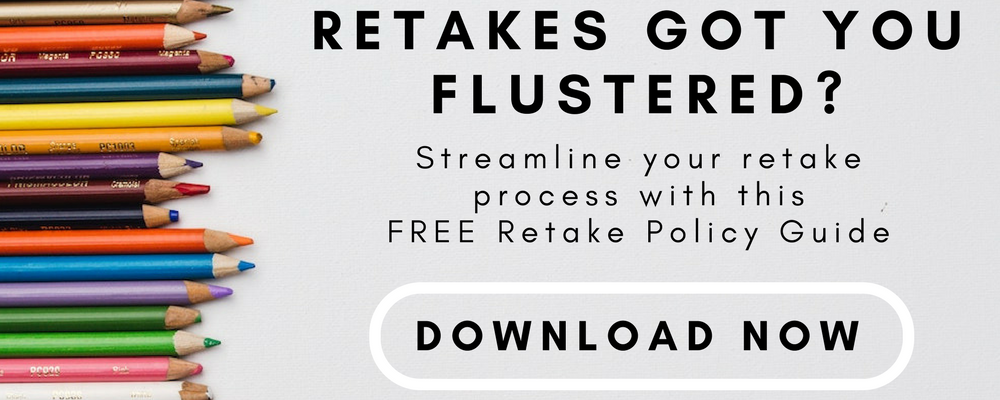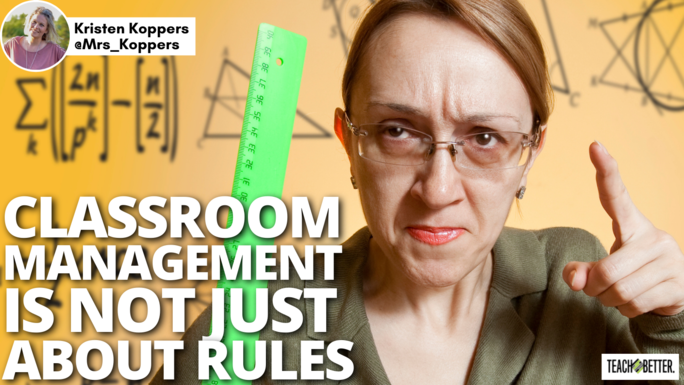TL;DR:
- Classroom management is not just about rules.
- Make students feel valued and successful as individuals in your class.
- Teach responsibility through natural situations that arise in your classroom.
- Model clear communication in your feedback to students.
Effective Classroom Management
We have always heard the phrase “effective classroom management” either from colleagues or administrators, but what does that entail? Classroom management can mean a variety of different strategies to promote more time on task. While it takes time to model these strategies in the classroom, it does not have to be time consuming.
Effective communication cancels any misconceptions in the classroom. Classroom management is more than rules. It is about treating each other with respect. Click To TweetStudents want to feel part of the class.
As mentioned in one of my earlier blogs, getting to know the students is a key to classroom management. Our students want to feel successful in the classroom. By getting to know the students, they see that you are taking an interest in their life. Students want to be a part of the classroom not just a kid sitting at a desk.
One day, I took out stickers that I had for a few years from a drawer. I told the students that if they were to answer a question correctly, they could earn a sticker. I really did not think it would go well, but it was worth the chance. My question pertained to the novel we were reading. All of a sudden, one hand went up. After discussing the question, I walked over to her desk and placed a sticker on her hand. The next question not one hand went up but four. The sticker did the trick!
While I would love to admit it was the stickers, it was more than that. It was that I focused on the students as individuals. For some reason, the students felt encouraged to participate. By the next day, the students knew there were no more stickers. One student asked, “can you order more?” So I did. I asked the students for suggestions on which stickers to order.
Students need to be responsible.
Classroom management is not all about rules and how a teacher runs a class— it’s about making the students feel comfortable. It’s about holding the students accountable for their actions. My 11-year-old understands that his actions could have consequences. My husband and I reiterate to our son that he has to be responsible.
The most important attribute that I can teach my son is to be responsible. Last year he forgot to complete his book report. He asked me to email his teacher for an extension. Now, before I finish this thought, I feel the need to state that I wear two hats while being a teacher and a parent. The teacher side of me would see it as the learning process rather than just turning in an assignment. However, the parent side of me believes that he was given a due date, all the information in plenty of time, and chose not to complete it by the due date. In the end, the parent side won.
I did not call his teacher; I did not email her. There were no reasons for me to do so as it was ultimately his choice for his actions. It was now up to the teacher. If she chose to give him an extension, that was between her and my son. Sometimes it is hard to separate being a parent and an educator. But, I knew that if I asked for an extension, he would not learn from this experience.
There are some reasons why work is not completed in time; however, making excuses is not helping the student to become successful. It is giving them more ways to find excuses.
[scroll down to keep reading]
Students need clear communication.
I have to admit that when it comes to communication, I could use more lessons in it. Sometimes my comments come off strong. I need to realize that clear communication is important not only on lessons and assignments, but when giving feedback as well. When we communicate with parents, students, and other educators, we need to learn that it’s not only what we say but how we say it.
Effective communication cancels any misconceptions in the classroom. Classroom management is more than rules. It is about treating each other with respect.
As teachers, we try to focus on a safe learning environment throughout the day. There are times that we stray away from this type of classroom management. We just have to remember that we are all in this together.
About Kristen Koppers
Kristen is an educator, Edumatch author, blogger, and presenter. She teaches ELA in secondary education as well as an adjunct professor at a local junior college. Kristen has been teaching for twenty years and has a Master of Arts in English (M.A.) and a Master of Education in Administration (MA. Ed.). She certified as a National Board Certified Teacher in 2009 and completed her recertification in 2019.
Kristen is the author of Differentiated Instruction in the Teaching Profession (2019) #DITeaching and The Perfect Puppy (2020) #ThePerfectPuppyEdu. Find out more information about Kristen at: www.kristenkoppers.wix.com/kop



